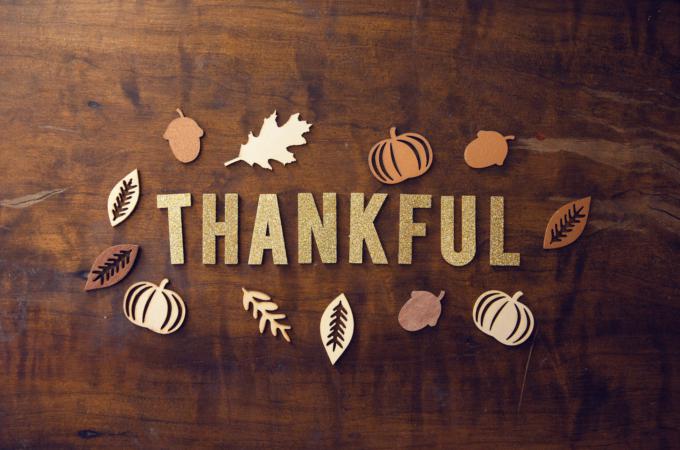On gratitude
In the course of a typical week, most of us express gratitude automatically, without thinking much about it. We say "thank you" in social situations among friends; professionally with colleagues; to strangers who have done us a good turn; in solitary prayer; collectively as members of a faith community; in our most personal relationships; and the list goes on. Any given "thank you" might not strike us as particularly significant, just as some feelings of gratitude are not quite as powerful as others. One might quickly forget about thanking the stranger who held open a door 15 minutes ago, but remain "eternally grateful" to the family friend who helped to secure a first job.
Why is gratitude so pervasive in human life? The most straightforward explanation is that we, as a species, need it. It is as though gratitude seeps into every scenario in life, from the mundane to the profound. We might think of our relationship to gratitude as symbiotic: there would be no gratitude without humans to express it, and there would be no humans without gratitude.
Giving thanks and vulnerability
If you think about your deepest, most abiding experience with gratitude, it can likely be traced to a time in life when you were vulnerable. Getting older often involves acknowledging dependence and accepting vulnerability. When we sense our time with loved ones is growing shorter, it becomes more valuable, and the result is that older adults tend to have a greater store of gratitude and overall contentment.
According to author Jeffrey Froh, teenagers on the other hand are uniquely hard-pressed to give thanks. He attributes this to a typical teenage aversion to vulnerability: "when you're grateful, you recognize the sense of dependency that actually exists . . . But in teens, everything is 'I did this on my own' and 'I want to do this on my own.'" Luckily, for the human race, being a teenager is only temporary!
The Thanksgiving holiday as we know arose during one of the most vulnerable moments in our national history. In 1863, President Abraham Lincoln received a letter from Sarah Josepha Hale, a New England writer and magazine editor. The main message of her letter was clear: she wanted Lincoln to declare Thanksgiving a national holiday. Until that point, Thanksgiving existed only in New England, where various towns and cities would hold celebrations at different times in the fall.
Hale had been petitioning presidents for 15 years to make Thanksgiving a national holiday, but Lincoln was the first president to take her up on it. With the Civil War tearing the country apart, Lincoln saw Thanksgiving as an opportunity to bring the country together and set aside the last Thursday in November "as a day of Thanksgiving and Praise to our beneficent Father who dwelleth in the Heavens."
Gratitude and Health
The amazing thing about gratitude is that even as it reveals our vulnerability, giving thanks actually makes us healthier, stronger and more connected to one another. Dr. Robert Emmons, a psychologist from University of California, Davis, has linked gratitude to an array of concrete health benefits. In his essay, "Why Gratitude is Good," he summarizes these benefits based on his decades of research:
Physical:
-- Stronger immune systems
-- Less bothered by aches and pains
-- Lower blood pressure
-- Longer and more restful sleep
Psychological:
-- Higher levels of positive emotions
-- More alert, alive, and awake
-- More joy and pleasure
Social:
-- More helpful, generous, and compassionate
-- More forgiving
-- More outgoing
As humans, we seem to understand that peppering life with deliberate expressions of gratitude is a social and moral necessity. The more consciously we adopt a spirit of gratitude, the more fulfilling our lives are likely to be. Gratitude experts such as Dr. Emmons advocate being systematic about giving thanks: keeping gratitude journals or simply taking time each day to think about things you are grateful for is a great place to start.
- Adam Johnson writes for Youville Assisted Living Residences, member of Covenant Health Systems, a Catholic, multi-institutional health and elder care organization serving New England.



















